#IoTtoWild: COP28, Climate Action and AIoT – Innovative Technology for a Sustainable Future
By Ellie Cai 2 months agoWelcome to the first episode of our #IoTtoWild blog series. The series aims to shed some light on the possibility of embracing technologies for achieving SDGs. We hope this new #IoTtoWild blog series can serve as a dynamic platform for dialogues, spotlighting innovative projects and approaches, and showing the profound impact of technological applications for a sustainable tomorrow.
Dear community,
How have you been?
Those of you who’ve been with us might have known that, Seeed Studio is as committed to sustainability as we are to developing great products and services for the community and industries. As the world converges at the United Nations Climate Change Conference (COP28) to confront the urgent challenges of climate change, a realization unfolds: there’s a serious gap between conservation discussions and technological applications, especially how emerging technologies are adopted in tackling climate issues with data-driven insights and actions. In response to this crucial need, we would like to present the #IoTtoWild blog series, to shed some light on the possibility of embracing technologies for achieving Sustainable Development Goals (SDGs).
We hope this new #IoTtoWild blog series can serve as a dynamic platform for dialogues, spotlighting innovative projects and approaches, and showing the profound impact of technological applications in the spheres of climate action, carbon neutrality, and environmental conservation, providing insights into how cutting-edge technologies, particularly AI and IoT, are shaping a more sustainable future. And we are extending our sincere invition for everyone to join us on this journey!
This is the first episode of our #IoTtoWild blog series.
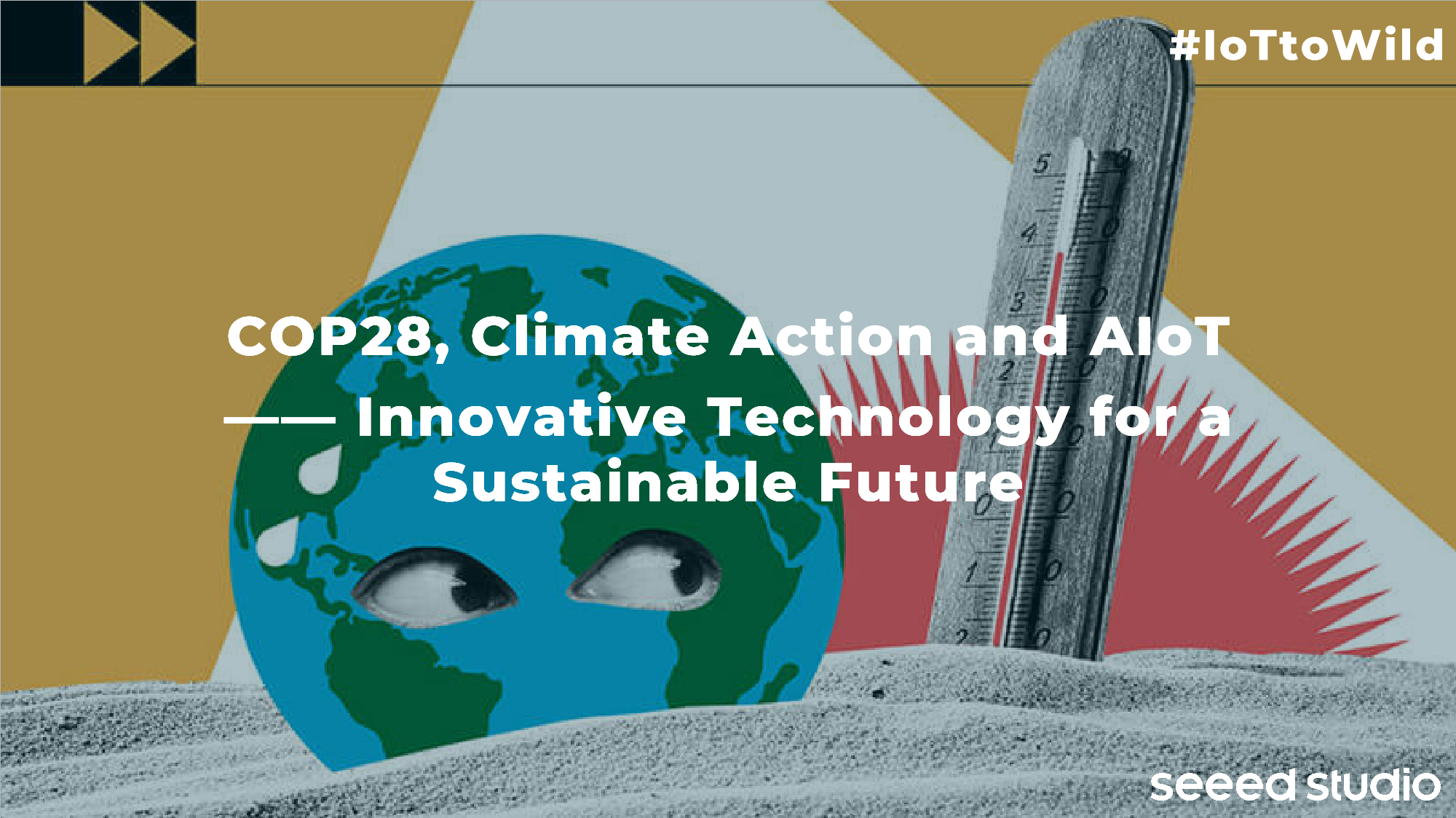
What is COP28: A Glimpse into Climate Action
COP28 (Conference of the Parties) is the United Nations Climate Change Conference scheduled to take place in Dubai, United Arab Emirates, from November 30 to December 12, 2023. This global event brings together leaders, negotiators, and stakeholders from around the world to discuss and address pressing issues related to climate change. The discussions encompass a wide range of topics, including:
- Climate Adaptation: Addressing how we can safeguard lives and livelihoods globally as the climate undergoes changes. Adapting to the evolving climate conditions and minimizing the impact on communities and ecosystems.
- Finance & Justice: Examining the financial aspects of climate action and justice, exploring how the world can effectively fund initiatives to combat climate change.
- Renewable Energy: Emphasizing the importance of sustainable energy practices in reducing emissions and creating a safer, cleaner, and more resilient future.
- Net-Zero Commitments: Stressing the urgency of credible and impactful actions to achieve net-zero goals.
- Loss and Damage: Addressing the moral responsibility to respond to the destructive impacts of climate change on people’s lives and communities.
- Early Warnings for All: Highlighting the global need for early warnings of extreme weather events, aiming to provide coverage for all populations by 2027.
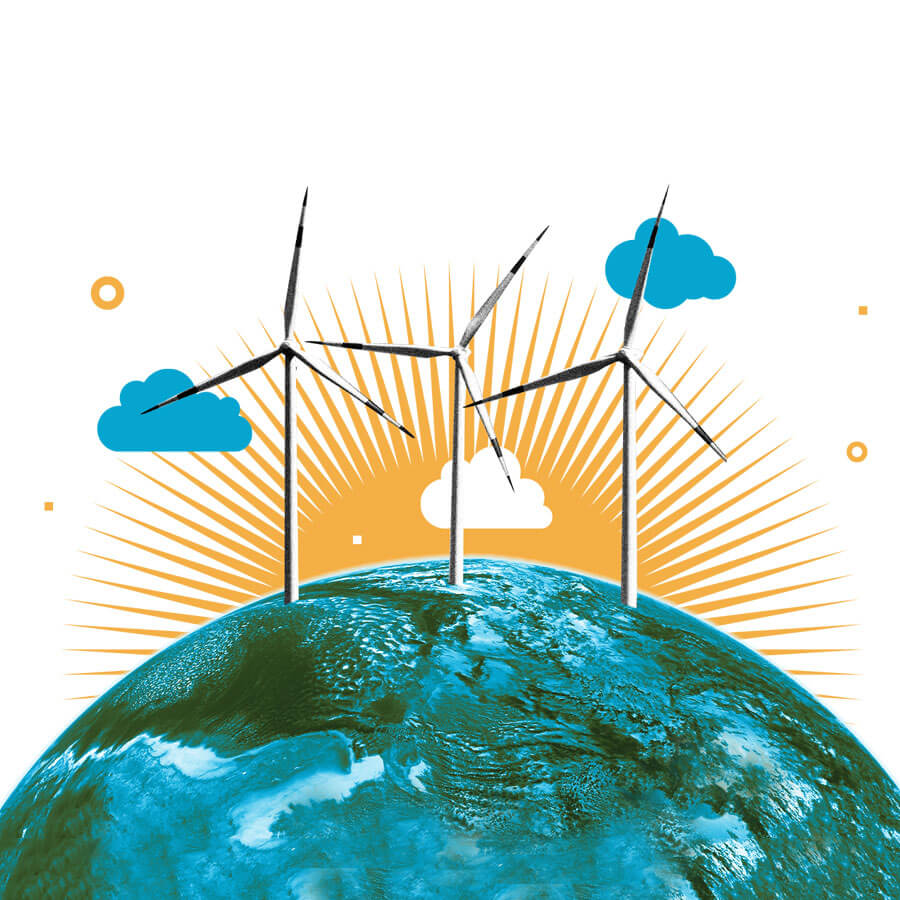
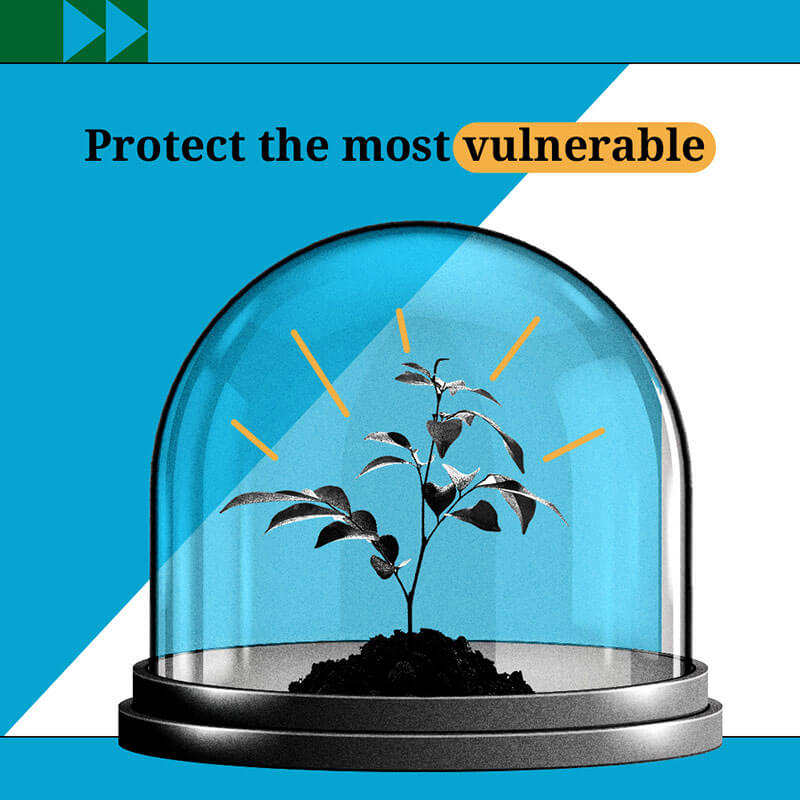
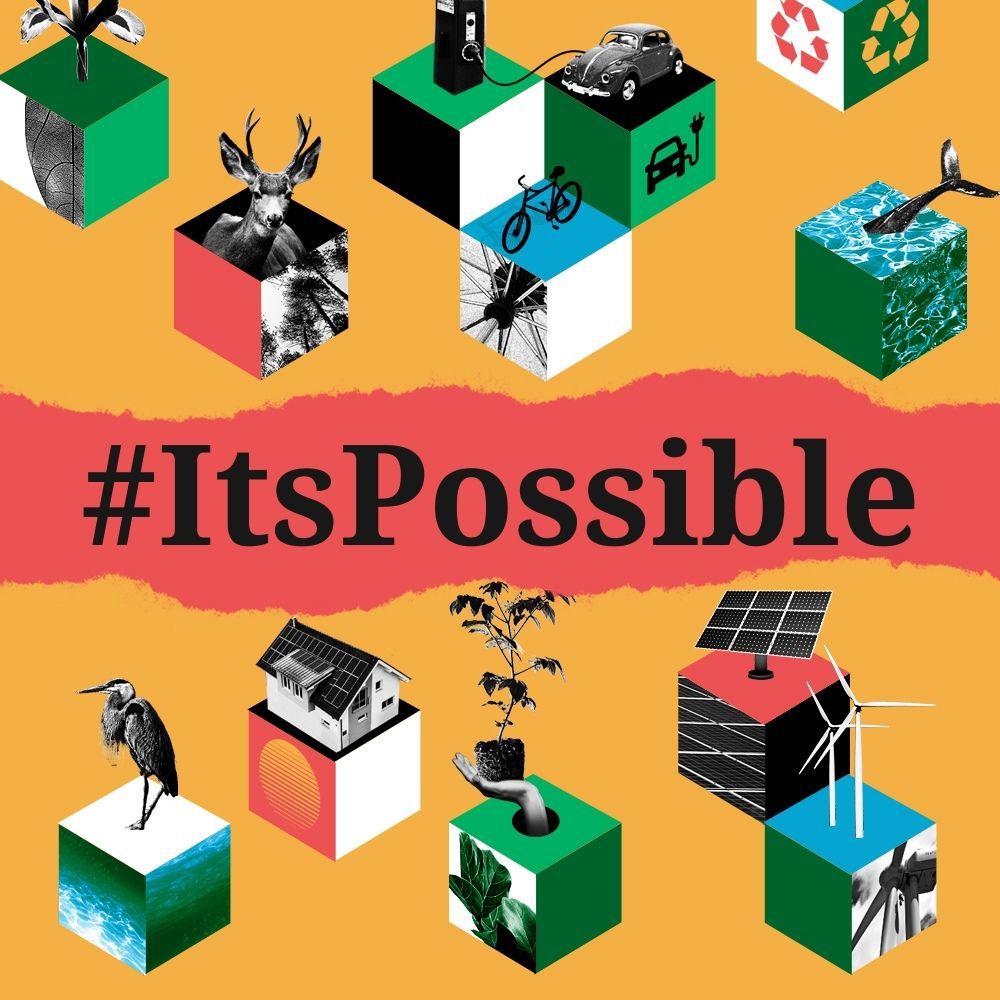
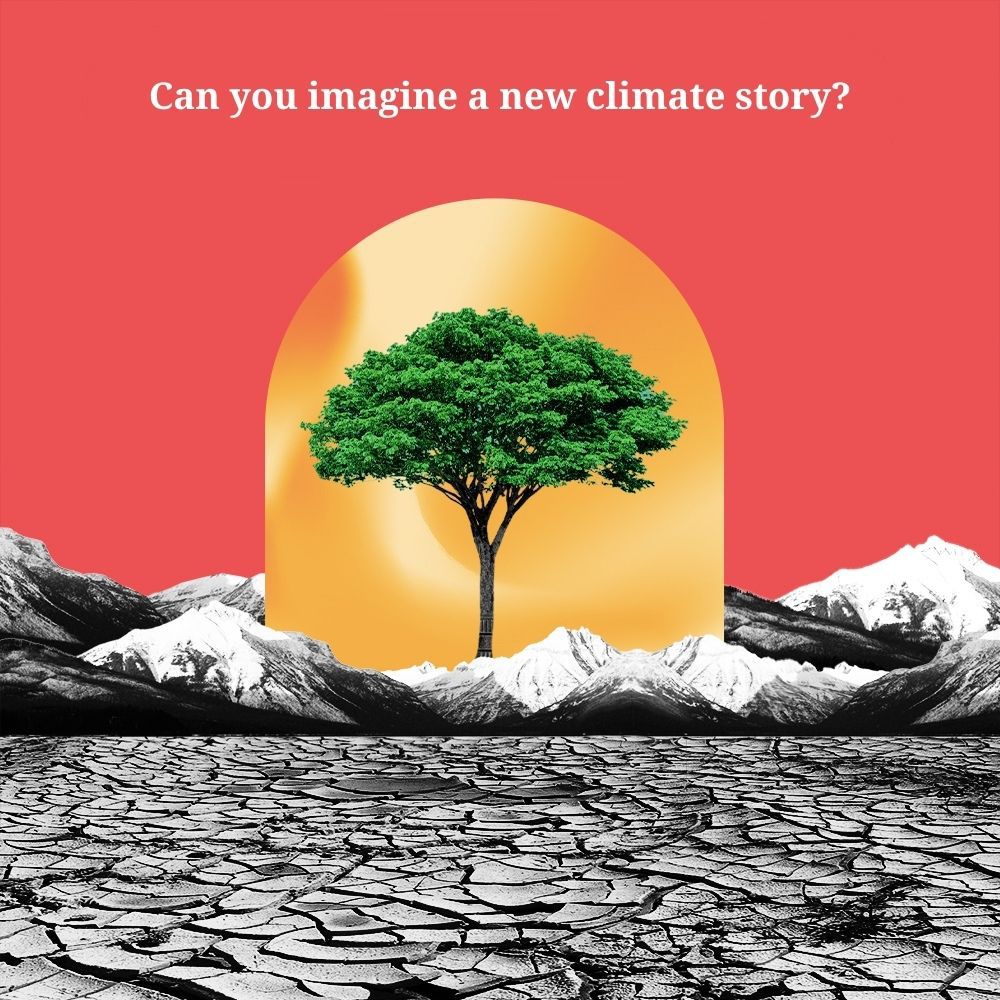
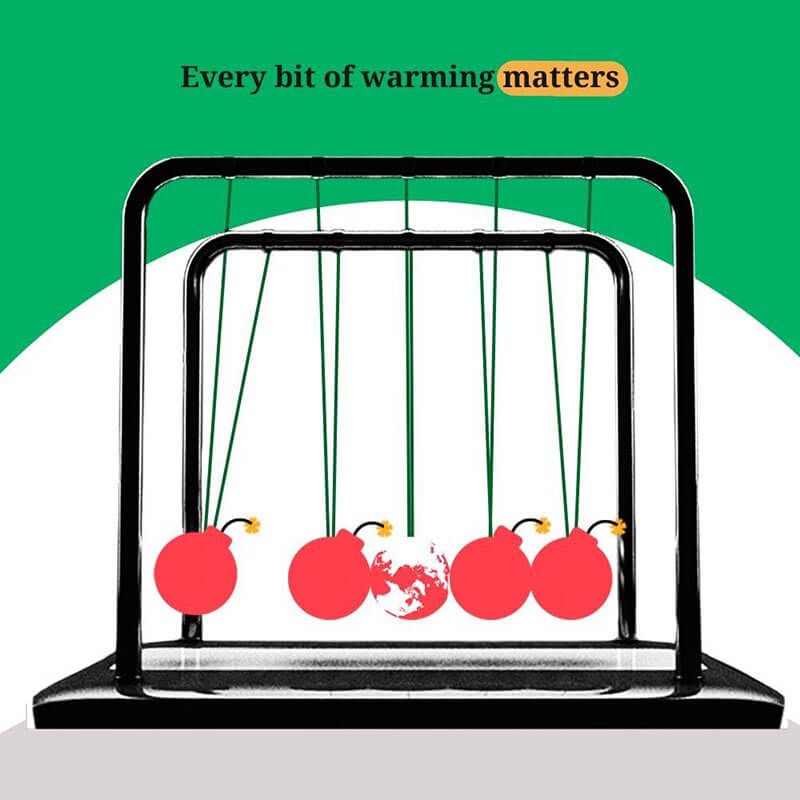

(Illustration: United Nations)
Climate Adaptation with IoT for a Sustainable Tomorrow
Actions by governments, cities, businesses, institutions and innovators are essential in tackling climate change and facilitating sustainable development. From predicting climatic patterns to optimizing energy consumption, AIoT’s potential role in addressing climate change is set to take centre stage.
In this blog post, I would like to introduce the Cagliari Smart City project, where IoT solutions have been applied to monitor microclimate data for city governance and academic studies.
Smart city technology, which encompasses the use of advanced IoT solutions technologies to collect data to improve urban infrastructure and services, is increasingly being implemented to help address the issue of urban heat islands. To address the challenges of urban heat waves, University of Cagliary, WiData and Abinsula, our partners in Italy, have deployed 500+ SenseCAP sensors including SenseCAP S1000 weather sensor along with SenseCAP S2100 LoRaWAN DTU, SenseCAP S2102 LoRaWAN sensor, and SenseCAP S2103 LoRaWAN sensor at more than 300 sites in Cagliari, Italy. This project offers urban heat island monitoring for the local administration to take action on the intervention in the building color and green space planning to better mitigate the heat island effect.
Call to Action
As COP28 unfolds, the interconnected themes of climate change, SDGs, and technological innovation take center stage. And the momentum should NOT stop after the conclusion of the COP28, we need to work together with continuous solid actions. At Seeed Studio, we have launched the “Tech4Good Bounty Program” to support all community members’ projects that contribute to achieving the SDGs. If you’re working on projects related to the following topics, no matter you are working at NGOs, NPOs, UN agencies, academia, foundations, or community groups, PLEASE DON’T BE SHY TO CONTACT US for collaborations!
- Open Innovation
- Decentralized Tech
- Equitable Equality
- Sustainable Communities and others related to SDGs.
That’s all for the first episode of the #IoTtoWild blog series! If you also hope to share your projects related to SDGs and discuss with like-minded people, welcome to join us at #SeeedforSDGs channel on Discord! This platform aims at converging open tech communities’ talents, passions, strengths, skill sets, and resources to work together, to share and inspire each other to work on projects and applications for meaningful causes.
Stay tuned for more update!